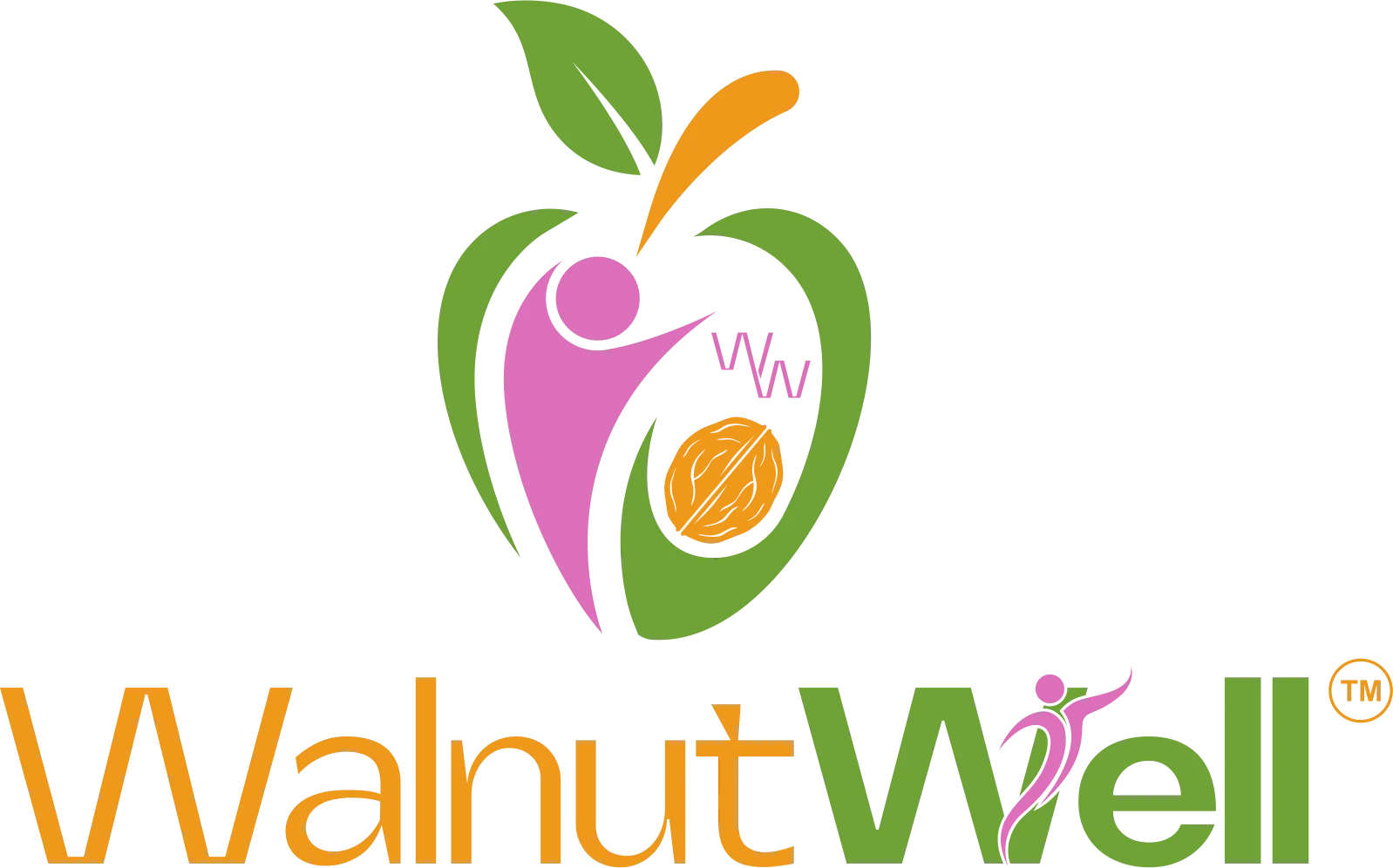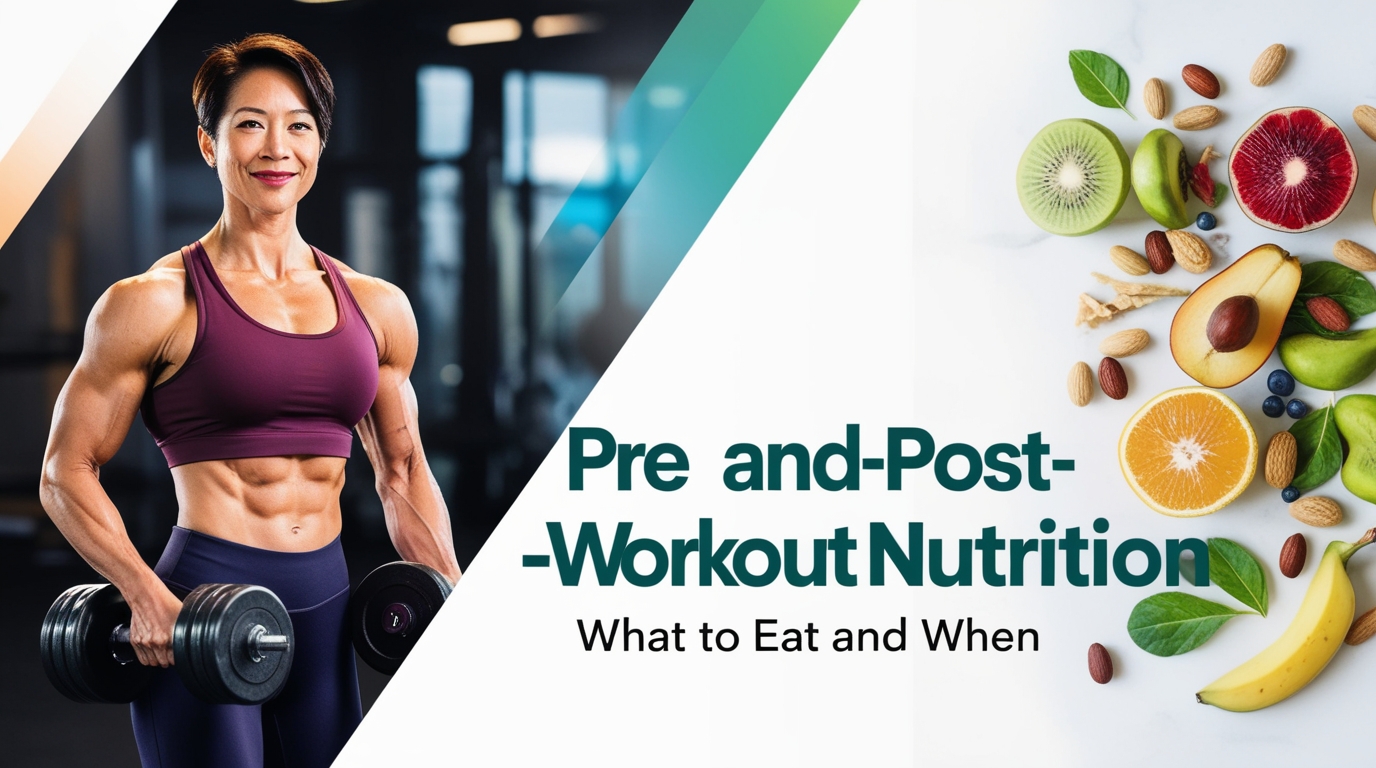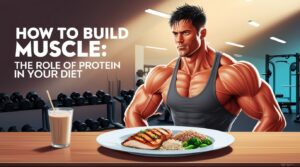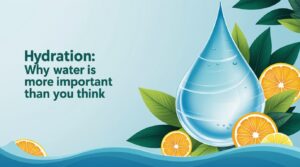Eating right before and after a workout is important for your performance and recovery. The right food can give you the energy you need to exercise and help your muscles recover afterward. Let’s explore what you should eat, when to eat, and how it helps your body before and after a workout.
If you want to plan you workout meals click here.
Why Pre- and Post-Workout Nutrition Is Important
When you work out, your muscles use up stored energy (called glycogen). To perform well during your workout and recover afterward, your body needs nutrients.
- Pre-workout meals give you energy to exercise at your best.
- Post-workout meals help your muscles recover and grow stronger.
Pre-Workout Nutrition: Fuel for Your Workout
Before a workout, you need to give your body enough energy to power through. The goal is to eat something that will fuel your muscles and keep your energy levels steady during exercise.
What to Eat Before a Workout
- Carbohydrates: Carbs are the main source of energy for your muscles. Eating carbs before a workout gives your body quick and lasting energy.
- Examples: Fruit, whole grains, oats, sweet potatoes, or rice.
- Protein: Eating a little protein before a workout can help protect your muscles and support muscle repair as you exercise.
- Examples: Greek yogurt, eggs, chicken, nuts, or a protein shake.
- Healthy Fats: While fats take longer to digest, having a small amount of healthy fat can provide slow-burning energy for longer workouts.
- Examples: Avocado, nuts, or a bit of olive oil.
When to Eat Before a Workout
Timing is key! You want to eat your pre-workout meal far enough ahead so your body has time to digest but close enough to have energy for your workout.
- Large meal: Eat 2-3 hours before your workout.
- Small meal or snack: Eat 30-60 minutes before your workout.
If you’re in a hurry or don’t have much time, a light snack like a banana or a smoothie will do the trick.
Pre-Workout Meal Ideas
- 2-3 hours before: A bowl of oatmeal with berries and nuts, or a turkey sandwich on whole grain bread.
- 30-60 minutes before: A banana with peanut butter, a small protein bar, or a piece of toast with almond butter.
Post-Workout Nutrition: Recover and Rebuild
After a workout, your body needs nutrients to restore energy and repair muscles. The right post-workout meal can help reduce soreness, improve recovery, and build stronger muscles.
What to Eat After a Workout
- Carbohydrates: After exercise, your body needs to refill its glycogen stores. Eating carbs helps your body recover its energy.
- Examples: Quinoa, whole wheat bread, fruits, or sweet potatoes.
- Protein: Protein is essential for repairing and rebuilding muscle tissue that was broken down during exercise.
- Examples: Chicken, fish, eggs, tofu, or a protein shake.
- Hydration: Don’t forget to drink water! It’s important to rehydrate, especially if you’ve been sweating a lot during your workout. Sometimes, a drink with electrolytes can help, especially after intense workouts.
- Examples: Water, coconut water, or a sports drink with electrolytes.
When to Eat After a Workout
The most beneficial time to eat after a workout is within 30 minutes to 2 hours. This is when your muscles are most receptive to nutrients, which helps speed up recovery.
If you can’t have a full meal right away, grab a small snack like a protein shake or some yogurt with fruit to keep your recovery going until you can sit down for a meal.
Post-Workout Meal Ideas
- Right after workout (snack): A protein smoothie with a banana, Greek yogurt with berries, or a boiled egg with a slice of whole grain toast.
- 1-2 hours after workout (meal): Grilled chicken with quinoa and veggies, a salmon and avocado salad, or a tofu stir-fry with brown rice.
The Importance of Hydration
Staying hydrated is important for both pre- and post-workout nutrition. Water helps regulate your body temperature, prevents cramps, and aids in muscle recovery.
- Before exercise: Drink 1-2 cups of water about 30 minutes before your workout.
- During exercise: Sip water regularly, especially if you’re exercising for more than 30 minutes.
- After exercise: Rehydrate with at least 2-3 cups of water. If you’ve had a particularly sweaty session, consider an electrolyte drink to replenish lost salts.
Special Considerations for Different Workouts
Not every workout is the same, and your nutritional needs may vary depending on what type of exercise you’re doing.
For Strength Training
If you’re lifting weights or doing strength-based workouts, protein becomes even more important, especially after your workout. It helps repair muscles and supports muscle growth. A high-protein snack or meal after your workout can help you recover faster.
For Endurance Training
For longer endurance activities like running, swimming, or cycling, your body burns through more carbs. Eating more carbs both before and after these workouts will help you maintain your energy and recover faster.
For Weight Loss
If your goal is weight loss, balance is key. You still need to fuel your workouts, but focus on whole, nutrient-rich foods that are lower in calories. Choose lean proteins, plenty of vegetables, and healthy fats. It’s also important not to overeat post-workout, thinking you need to “replace” all the calories you burned.
Simple Tips for Success
- Listen to your body: Everyone is different, so experiment with different foods and timings to see what works best for you.
- Plan ahead: If you know you’ll be exercising at a certain time, plan your meals accordingly so you’re not rushing to eat last-minute.
- Don’t skip meals: Even if you’re short on time, grab a quick snack before or after your workout to keep your body fueled and recovering properly.
Conclusion
Eating the right foods at the right times can make a big difference in how you feel and perform during your workouts. Pre-workout nutrition fuels your exercise, while post-workout meals help with recovery. Focus on a balance of carbs, protein, and hydration to keep your energy up and muscles strong.
By following these simple tips, you can boost your workout results, recover faster, and feel more energized throughout the day!





